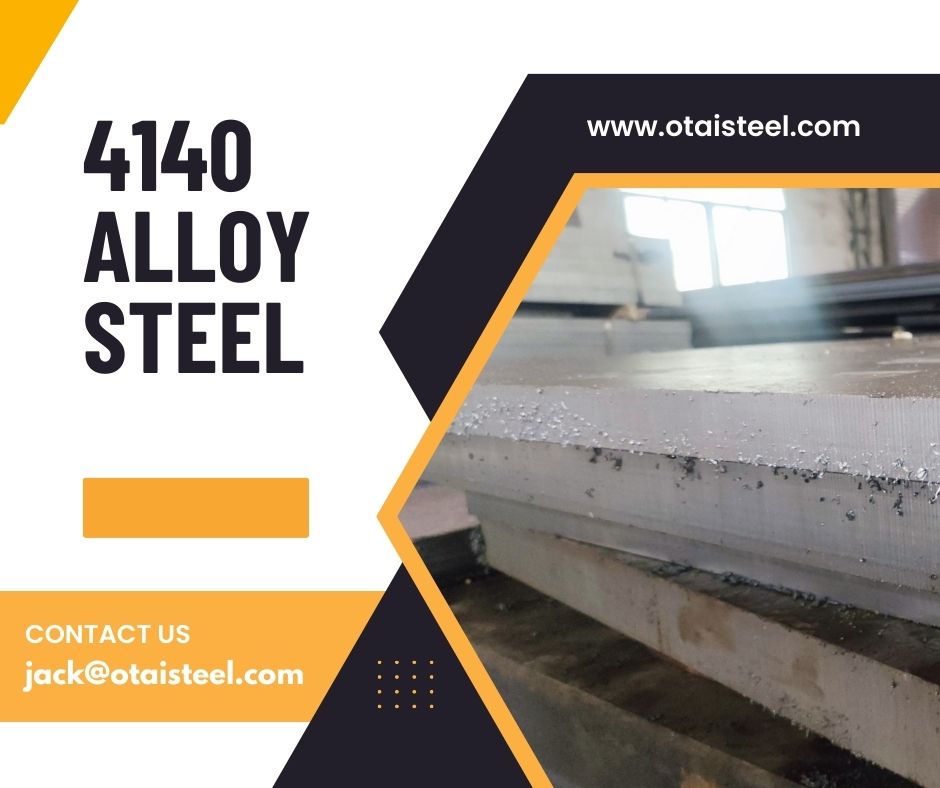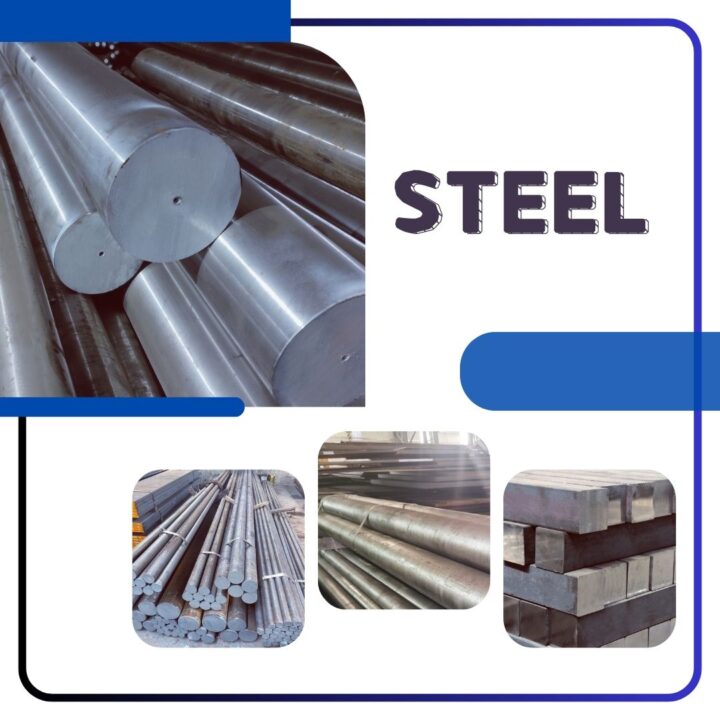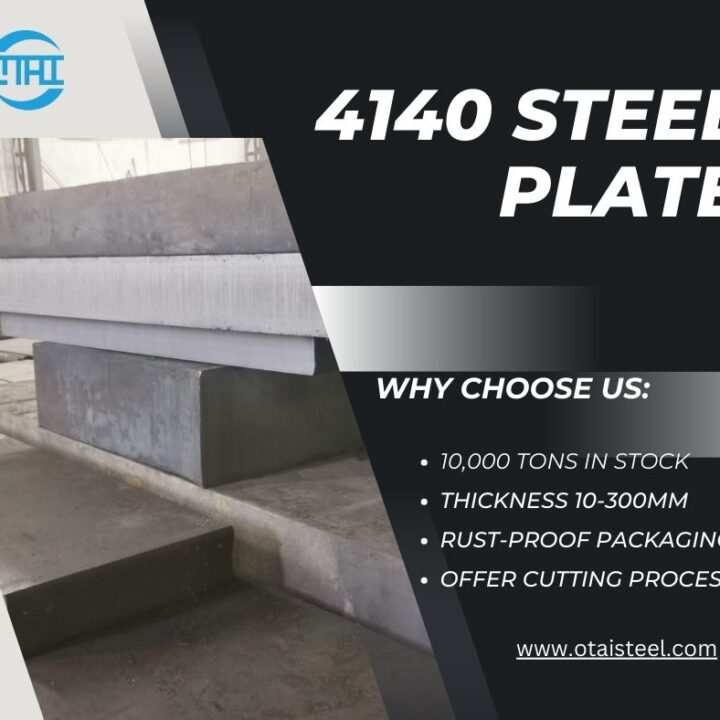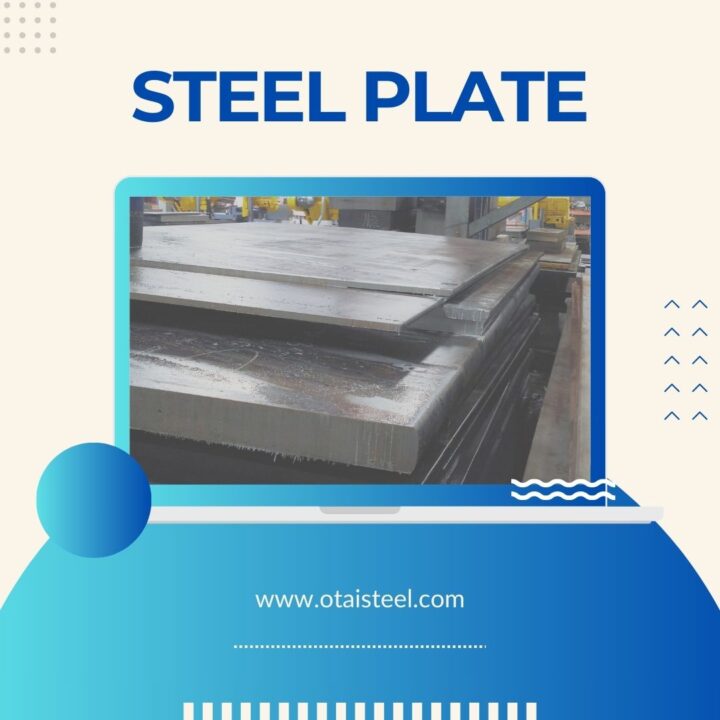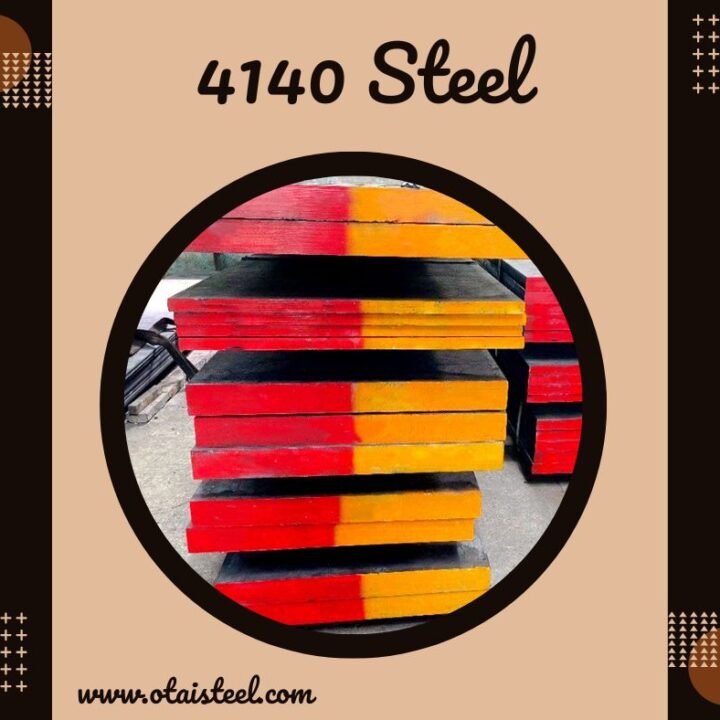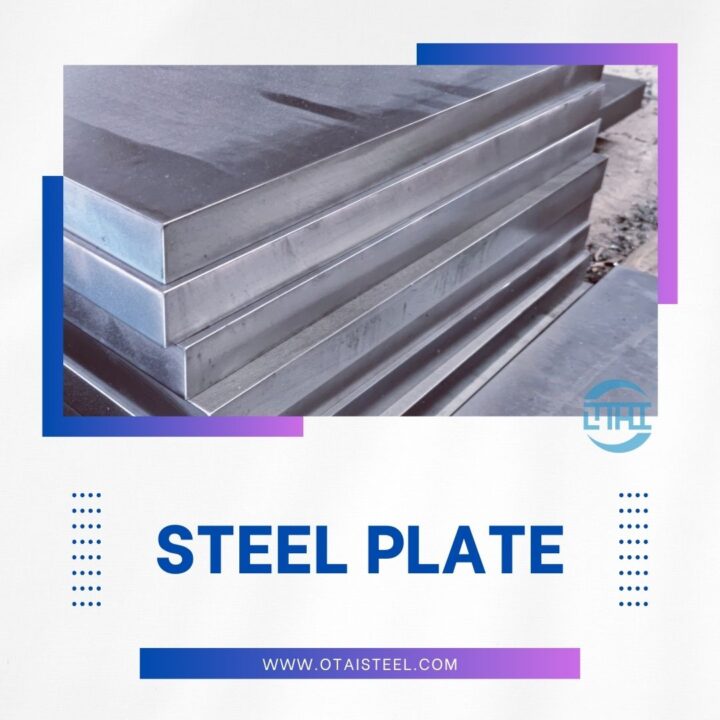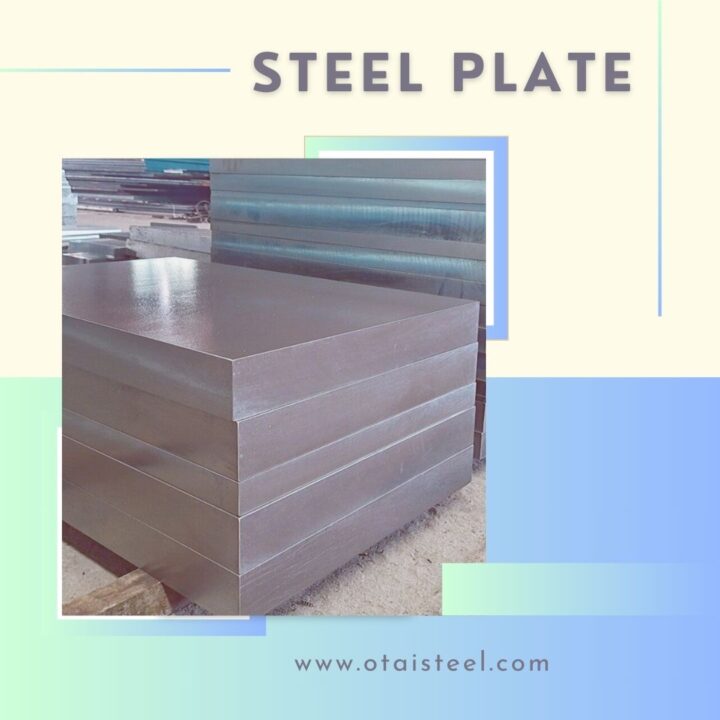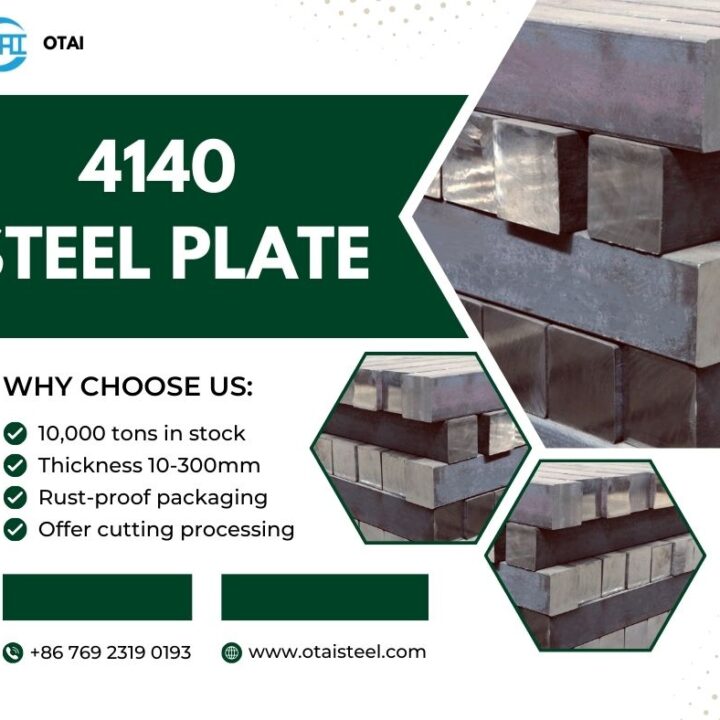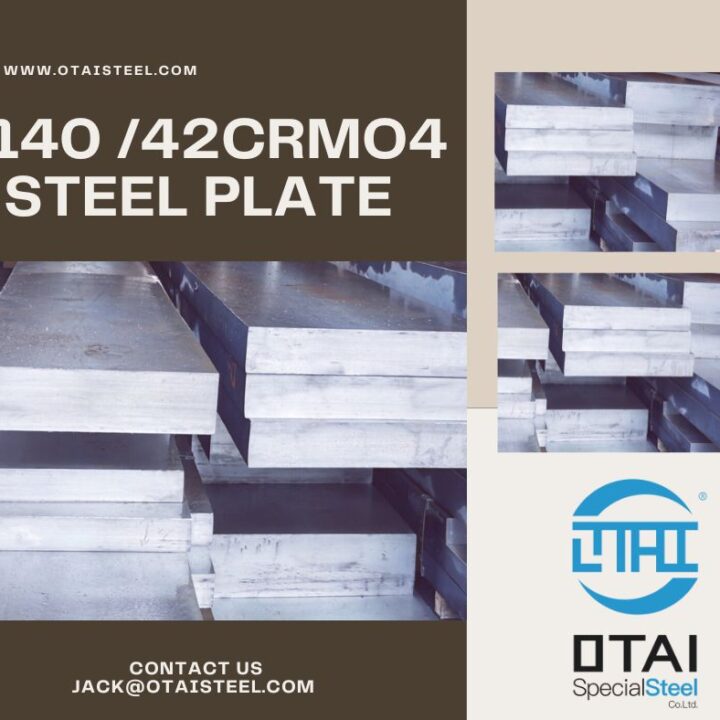In the world of metallurgy and industrial applications, 4140 alloy steel plate stands as a shining example of innovation and versatility. This alloy, often referred to simply as 4140 steel, has become a cornerstone material for a wide range of industries, from manufacturing to construction and beyond. (the Potential of 4140 Alloy Steel Plate)
Understanding the Composition
At its core, 4140 alloy steel plate is a low-alloy steel that belongs to the family of chromium-molybdenum steel alloys. Its unique composition is what sets it apart from standard carbon steel. The primary elements in 4140 steel include:
- Iron (Fe): As the base metal, iron provides the structural foundation of the alloy.
- Carbon (C): Carbon content is relatively low compared to other steel types, typically ranging from 0.38% to 0.43%. This contributes to its impressive strength and hardness.
- Chromium (Cr): Chromium adds corrosion resistance and enhances hardenability.
- Molybdenum (Mo): Molybdenum further improves strength and toughness, making 4140 steel exceptionally durable.
- Manganese (Mn): Manganese aids in the hardening process during heat treatment.
- Silicon (Si): Silicon promotes better weldability and overall alloy stability.
These carefully balanced elements work in harmony to give 4140 alloy steel its outstanding mechanical properties.
Key Properties of 4140 Alloy Steel
- Exceptional Strength: One of the most notable characteristics of 4140 steel is its remarkable tensile strength. It can withstand heavy loads and high-stress applications, making it ideal for components subject to intense mechanical forces.
- Hardness: 4140 steel can achieve a hardness of 22-30 HRC (Rockwell C scale) after heat treatment. This hardness is crucial for applications requiring wear resistance.
- Good Ductility: Despite its high hardness, 4140 steel retains good ductility. This means it can be machined, forged, and formed into various shapes without compromising its structural integrity.
- Machinability: 4140 steel has excellent machinability, allowing for precision machining, which is essential for creating intricate components.
- Heat Treatability: This alloy responds well to heat treatment processes such as quenching and tempering, allowing for customization of its mechanical properties to suit specific applications.
Applications of 4140 Alloy Steel Plate
Now that we understand the composition and properties of 4140 alloy steel, let’s explore its wide-ranging applications:
- Aerospace Industry: 4140 steel is used in aircraft landing gear components, engine mounts, and structural parts due to its high strength and reliability.
- Automotive Sector: In the automotive industry, this steel is utilized for critical components like axles, crankshafts, and gears, where strength and durability are paramount.
- Construction: In construction, 4140 steel finds its place in the fabrication of heavy machinery, crane components, and structural supports.
- Oil and Gas: For drilling equipment, downhole tools, and components exposed to harsh environments, 4140 steel’s resistance to corrosion and high tensile strength make it a preferred choice.
- Firearms Manufacturing: The firearm industry employs 4140 steel for barrels, receivers, and various components due to its ability to withstand high pressures and mechanical stress.
- Tooling and Machining: The exceptional machinability of 4140 steel makes it a top choice for manufacturing tools, dies, and molds.
- Marine Applications: 4140 steel is utilized in shipbuilding, especially for propeller shafts and other critical components that must endure the corrosive effects of seawater.
- General Engineering: In countless other engineering applications, from gears and shafts to bolts and fasteners, 4140 steel’s versatility shines.
Advantages of Using 4140 Alloy Steel
- Cost-Effective: Despite its outstanding properties, 4140 steel remains cost-effective, making it an attractive choice for manufacturers.
- Versatility: Its adaptability to various heat treatment processes allows for tailoring its properties to suit specific requirements.
- Longevity: Components made from 4140 steel exhibit exceptional durability, resulting in longer service life and reduced maintenance costs.
- Resistance to Fatigue: It can withstand cyclic loading and high-stress conditions without succumbing to fatigue, which is crucial in industries like aerospace and automotive.
- Weldability: 4140 steel’s good weldability simplifies the fabrication process and offers design flexibility.
- Corrosion Resistance: The addition of chromium enhances its resistance to corrosion and oxidation, particularly when compared to standard carbon steel.
4140 alloy steel plate stands as a testament to the ingenuity of materials science. Its composition, properties, and wide-ranging applications make it a versatile and invaluable resource for industries across the board. Whether you’re in aerospace, automotive, construction, or any field that demands strength, durability, and reliability, 4140 steel is likely to be a key player in your endeavors. With its exceptional strength, heat treatability, and cost-effectiveness, 4140 alloy steel plate continues to shape the future of engineering. (the Potential of 4140 Alloy Steel Plate)
